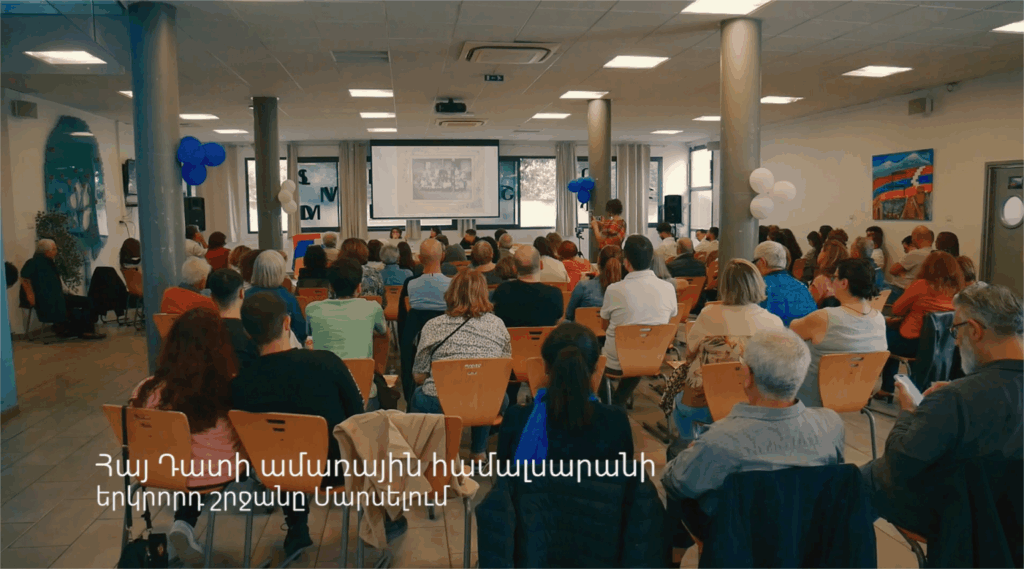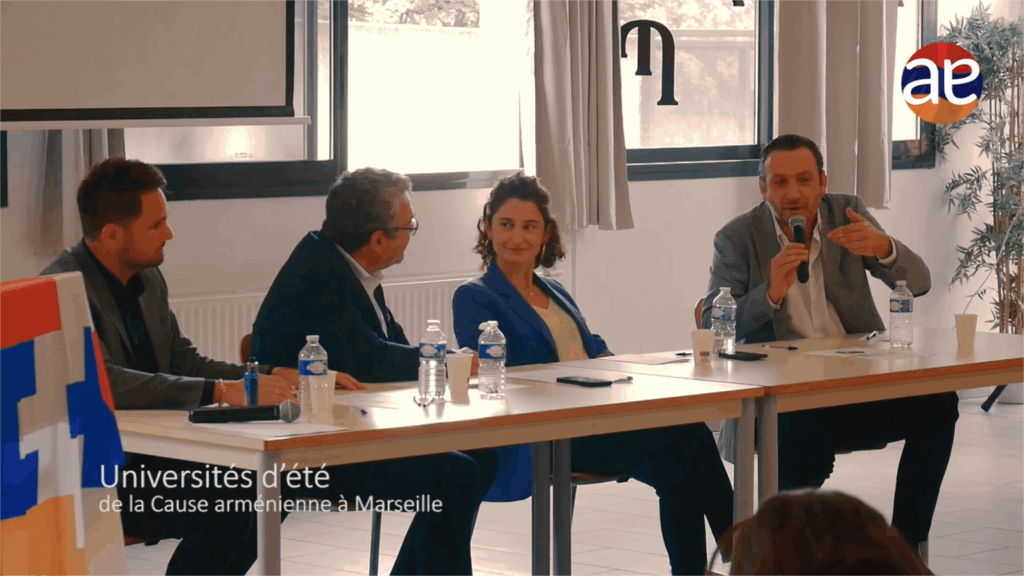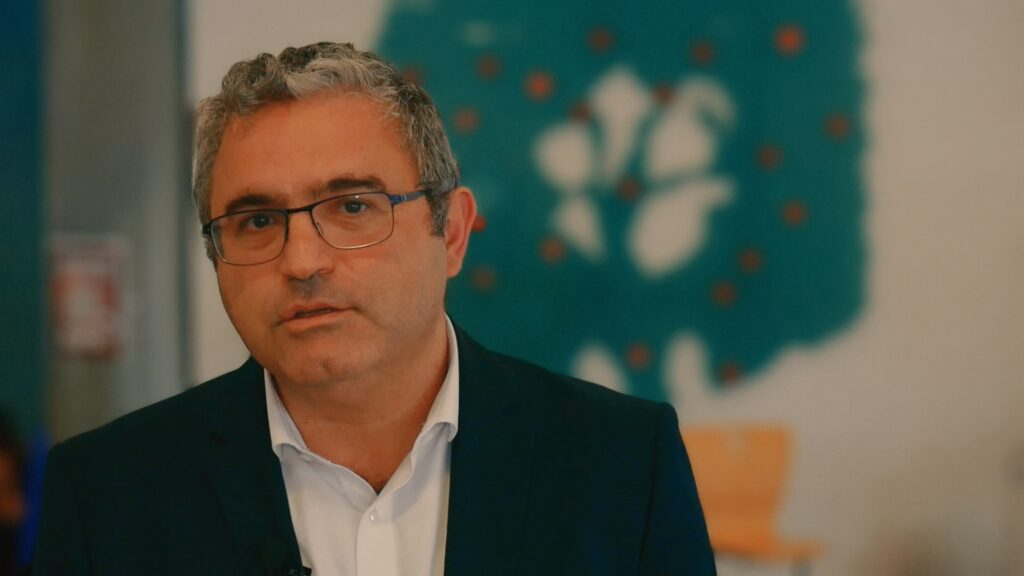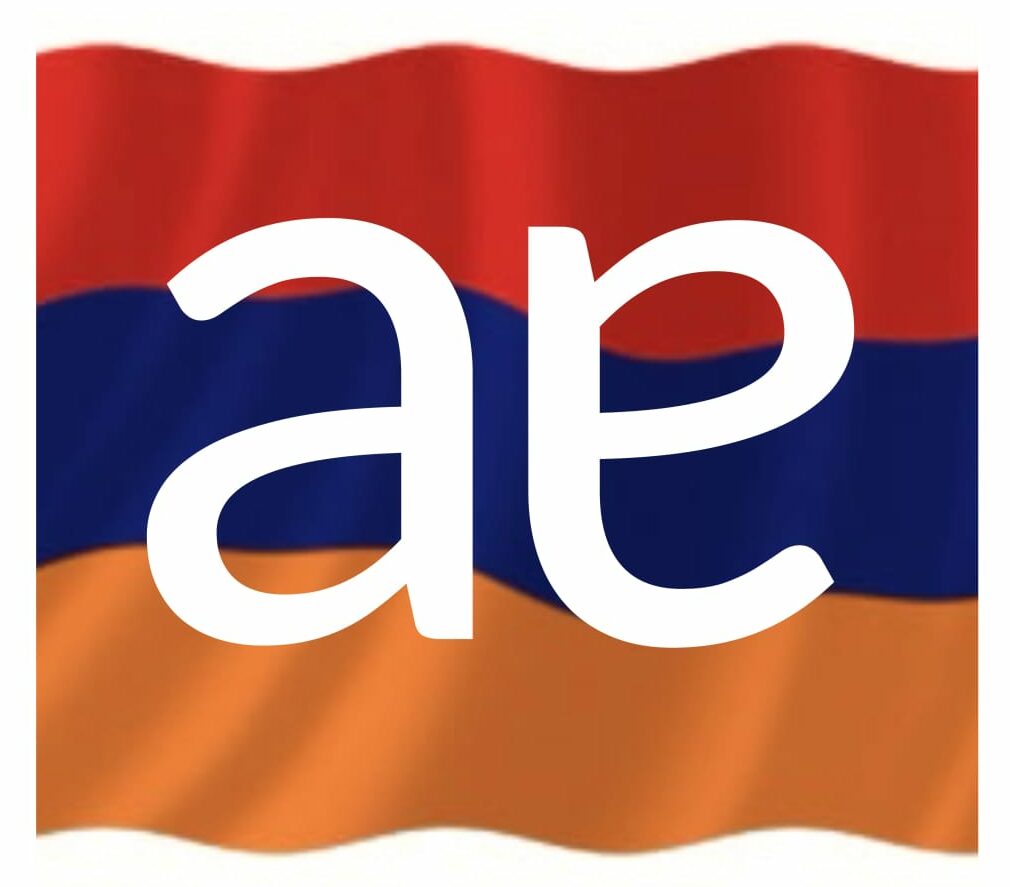On Saturday, 13 September, the Hamaskaïne School in Marseille hosted the second edition of the Summer Universities of the Armenian Cause, organised by the Committee for the Defence of the Armenian Cause (CDCA) with the aim of preparing a roadmap and establishing actions that will enable us to fight for the Armenian Cause in a much more effective way and in the interests of Armenia, Artsakh, and the recognition and criminalisation of the Armenian Genocide. The event brought together elected officials, activists, researchers and citizens for a full day of reflection on key themes: identity, dual belonging, the relationship with Armenia and current geopolitical issues. How can we defend the memory and rights of the Armenian people in an indifferent international context, when Yerevan’s strategy is met with perplexity and criticism? Four debates to identify the dilemmas facing the Armenian diaspora.
First round table: Defending the Armenian cause as a British citizen: issues and challenges
The first round table, moderated by Azad Balalas Kazandjian, Aurore Bruna (co-presidents of CCAF Sud) and Jules Boyadjian, former president of CDCA, examined the balance between republican loyalty and Armenian memory. Those present defended the idea of full republican commitment without renouncing the Cause. ‘How can we transform this tension into a constructive political force?’ asked Aurore Bruna, recalling the need for French citizens of Armenian origin to place their commitment within the republican framework, while refusing to erase their collective memory. The participants described this balance as fragile, but essential to the legitimacy of their action.
The Diaspora, a player in its own right
Julien (Diko) Harounyan, co-chair of CCAF South, emphasised the need for ‘an open dialogue with Armenia’ in order to strengthen the cohesion of the diaspora and prepare for ‘the challenges of tomorrow’: uncertain peace, border security and the still unresolved fate of Armenian prisoners held in Baku.
Second round table: Can we defend the Armenian cause while opposing the policies pursued by the Armenian government?
The second round table, bringing together Hovsep Der Kevorkian, Sarah Tanzilli and Julien (Diko) Harounyan, emphasised the need to dissociate the Armenian cause from the policies of an Armenian government deemed to be failing.
For Hovsep Der Kevorkian, a member of the World Bureau of the Armenian Revolutionary Federation (ARF), the answer is clear: ‘Yes, it is possible. And what’s more, it is essential. The Armenian cause and the defence of the historical rights of the Armenian people do not depend on any government.’
Debates at the Crossroads of Memory and Citizenship
This view is shared by Sarah Tanzilli, a former member of parliament, who sees no contradiction in asking France and the European Union to support the Armenian state while denouncing the choices made by the current government. The issue of the release of prisoners, the withdrawal of Azerbaijani troops from Armenian territory and the right of return for displaced persons from Nagorno-Karabakh remain at the heart of these concerns.
Third Round Table: History and memory of the Armenian diaspora in France
The third round table, with Astrid Artin Loussikian (ARAM Association) and Sacha Vaytet Cazarian (Haïastan Média), warned of the risk of identity dilution. The speakers advocated for modernised transmission methods: digital media, bilingual content and adapted educational tools. All emphasised the urgent need to renew the ways in which knowledge is transmitted to younger generations.
In a context where assimilation and dispersion threaten to dilute Armenian identity, transmission is no longer limited to traditional commemorations: it must adapt to contemporary codes, integrate digital tools and involve educational and cultural actors.
Fourth round table: Armenia-Azerbaijan: is peace really possible?
Finally, the last session brought together lawyer Philippe Raffi Kalfayan, CDCA President Anahit Akopian and Azerbaijani dissident Mahammad Mirzali. His testimony, marked by the repression of the Aliyev regime, served as a reminder that dialogue and vigilance must go hand in hand.



Main source: horizonweekly.ca

